#war trauma
Text
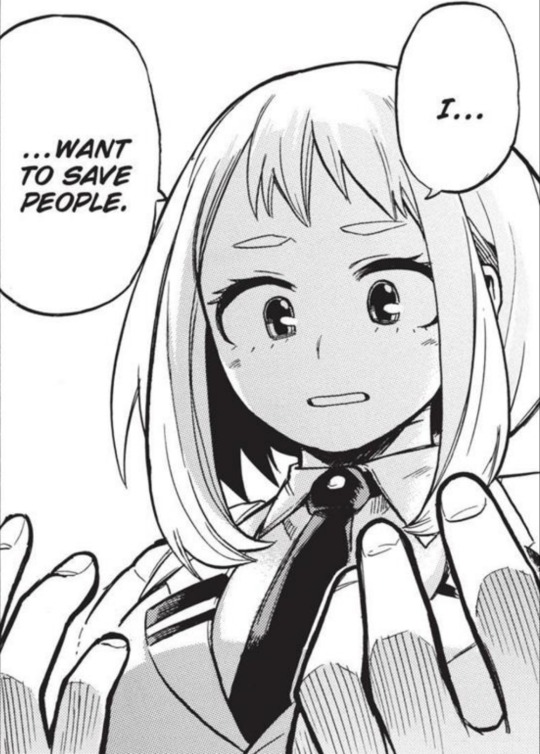
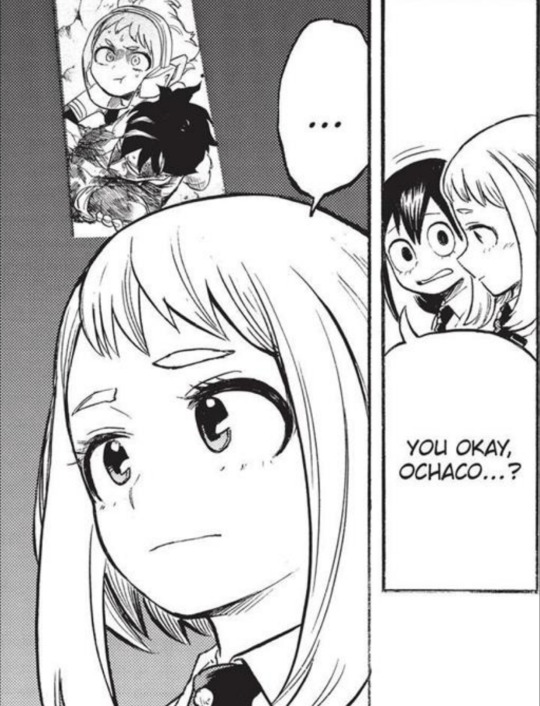
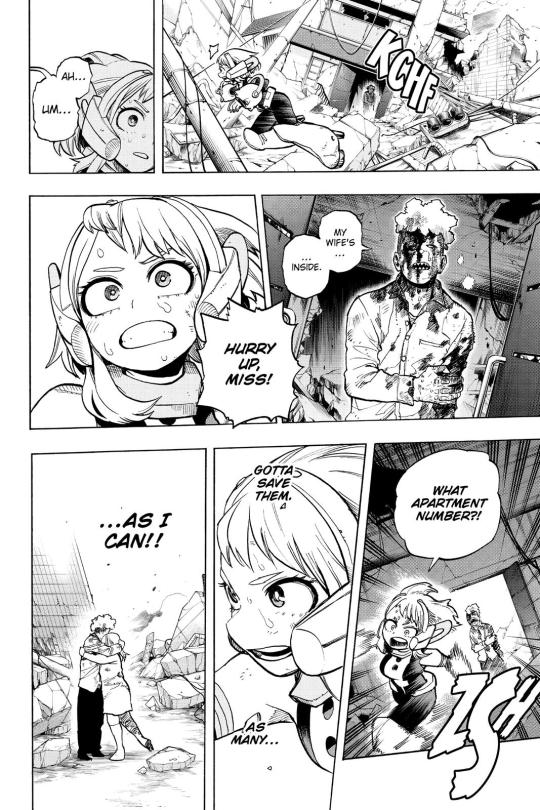
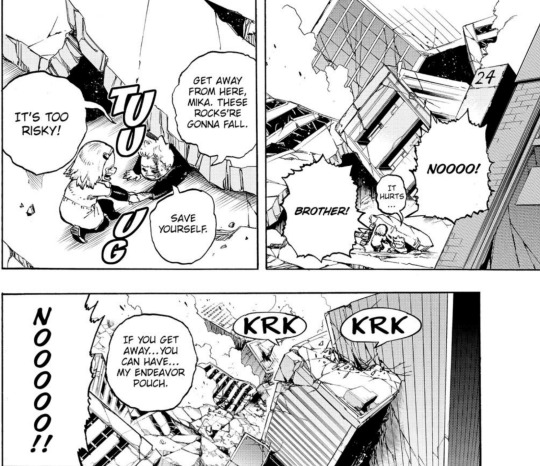
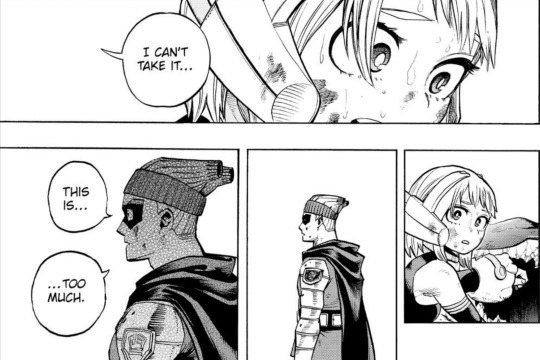
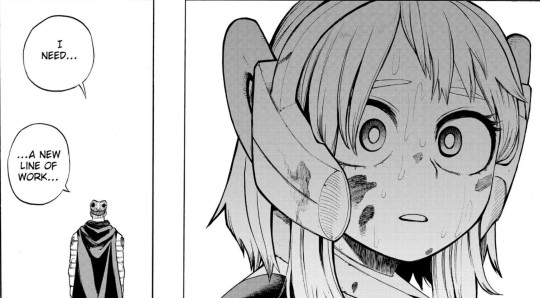
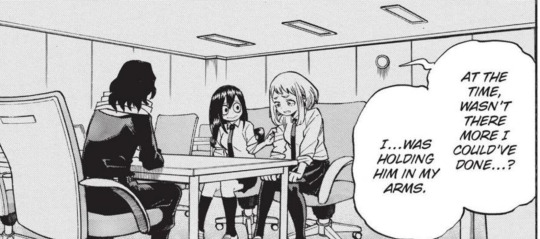
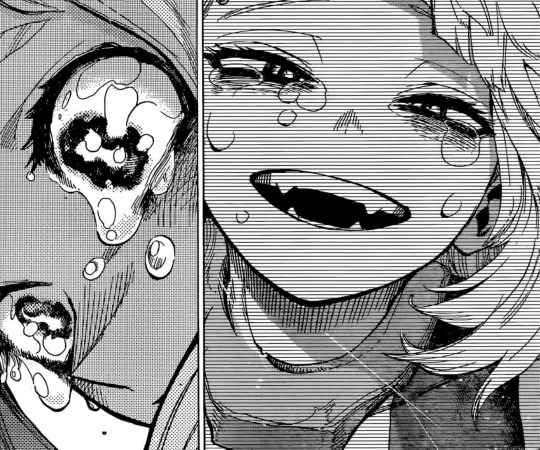
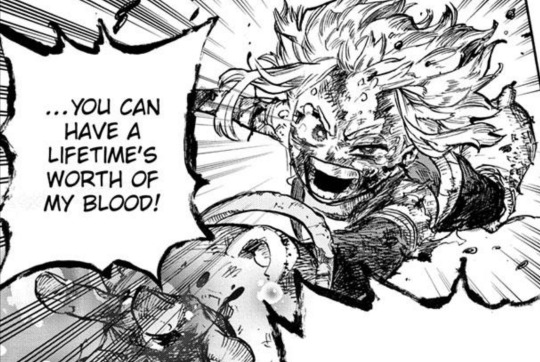
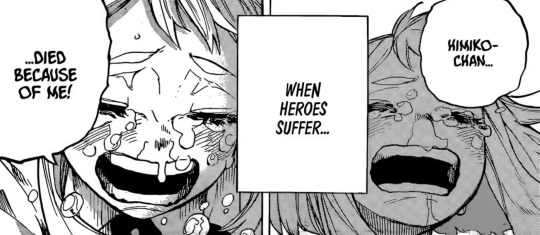
I want to save people
#trauma coping#ptsd#war trauma#survivor guilt#mha#mha 430#bnha#ochako needs a hug#she went through so much#himiko toga#ochako uraraka#you are my hero#mha ruined me#ochatoga#togachako
598 notes
·
View notes
Note
do you have a fic rec where harry healed his trauma and then he met draco who still feel so shameful about himself, so then harry helps draco to heal his war trauma? thanks in advance! 💓
Hi anon, what a great ask! I love the idea of them bonding over shared trauma, and I think the best fics exploring this theme are the ones showing that healing is in fact an ongoing (and often non-linear) process, in this sense they’re always healing together 🥹 here are some fics that came to mind, most are down & out Draco but not all of them. Enjoy!
Slow Hands by eleventy7 (T, 10k)
Blood, shadows, and paper hearts. The Shadow hunts students, but Draco Malfoy most of all.
Rebuilding Draco Malfoy by khasael (E, 11k)
Draco wants to do something to get his life back on track, but no-one seems to be taking him seriously – until he finds himself in an Auror training session led by Harry Potter.
Said and Unsaid (or, The Value of Knowing When to Stop Talking) by bryoneybrynn (T, 15k)
When the Interrogator asked if he had anything to say on his own behalf, Draco shook his head, his lips pressed tight in a thin line. There was nothing to say that wouldn’t sound like an excuse.
The Years That Walk Between by Femme (E, 16k) - past Draco/Snape
Draco finds his way after the war.
Between Myth and Man by slytherco (E, 16k)
Draco, lost and a little broken, navigates post-war reality convinced that people like him should not be allowed to make their own choices. To solve the problem of his self-sabotaging tendencies, he starts taking a few drops of Veritaserum every morning.
Benevolence and Redemption by silvered_glass (M, 19k)
Draco's the most unlikely Auror recruited to the department in at least three centuries. Ostracised and unwanted, he's been on paperwork duties for the three years since he finished training. Harry is the Saviour of the Wizarding World with nice forearms and too-large hands who suddenly starts turning up in the Ministry gym when Draco’s there, and sitting on Draco’s desk, and asking for Draco’s assistance on cases.
Vale Sanare by RurouniHime (M, 23k)
Draco’s world gains a new component just when he thought he’d sorted everything out.
Strange Bedfellows by ravenclawsquill (E, 30k)
When Harry encounters a frail and fidgety Draco Malfoy at the Ministry, he just knows something is wrong and he’s determined to get to the bottom of it. A story about Deadly Nightshade, crippling insomnia, excellent wine … and finding what you need in the strangest of circumstances.
Open For Repairs by FeelsForBreakfast (M, 5k)
After the war, Draco works at a tv repair shop and Harry breaks things. feat. sad boys in jumpers and more ABBA than is probably necessary
As Souls From Bodies Steal by Femme (E, 41k)
Hope may be found in the oddest of places, even in the bleakness of winter.
(We'll Call This Fixer-Upper) Home by @phdmama (E, 52k)
Draco Malfoy hasn’t set foot on English soil in ten years. After the war, he fled to America, where he found himself in a community, and healed himself through following his heart into music. He’s now the lead singer and songwriter for an internationally known band, who have come back to headline the Wiltshire Music Festival. But as Draco is about to learn, his past isn’t as far away as he might have believed, and his future may hold more than he ever could have dreamed.
Super Rich Kids by trishjames (E, 81k)
Draco Malfoy has become disillusioned by the glitz and glamour of the scandalous lives of the Post-Second Wizarding War Pureblood Elite. Enter: one existential crisis, one group of thieving cynical friends, and several terrible, terrible decisions.
At Your Service by Faith Wood (E, 95k)
Hogwarts students are in danger; Harry is determined to save them all. There's only one thing he knows for certain: Draco Malfoy is somehow involved.
Nor All That Glisters by @sweet-s0rr0w (E, 110k)
Lonely and frustrated on house arrest, with no prospects for the future, Draco begins brewing Felix Felicis in an attempt to improve his lot. Just in the short term, of course. He isn’t a total idiot.
All Life is Yours to Miss by Saras_Girl (M, 114k)
Professor Malfoy's world is contained, controlled, and as solitary as he can make it, but when an act of petty revenge goes horribly awry, he and his trusty six-legged friend are thrown into Hogwarts life at the deep end and must learn to live, love and let go.
45 notes
·
View notes
Text
Something that shows how cruel and heartless men can actually be is their treatment of women during and after war times, and society as a whole enables them.
Women and children are the primary targets in military conflicts — they‘re seen as property, and both the enemy countries AND the home counties of these women and children view them as livestock and objects they can claim & use however they please.
Whilst men fail to acknowledge that men cause wars and that rich men take advantage of poorer men during these times, they love to complain about how women are "privileged" during war. However, when we take a closer look, the whole picture changes: rape of the enemy‘s women is one of the most prevalent war crimes, and women make up the majority of death victims in post-war times (combat deaths only make up a small percentage of war deaths in total, most deaths are civilians).
Women are "claimed" and therefore abused by soldiers who see them as their enemy‘s property, and not only that — the men from these women‘s home countries commit rape as well, and force pregnancy & childbirth upon them to make up for the losses during military conflicts.
Women are also the ones who keep their home countries going, and have been the ones who re-built them in the past (see Germany after WW2). Just because men believe that women are "inferior" (hence banned them from combat, and the women in the military are often raped by their male peers!) and think that torturing them in their homes instead is a "privilege" doesn’t mean it‘s true.
And societies, whether during or post war, whether part of the conflict or not, usually uphold the belief that women‘s suffering is meaningless, collateral damage if anything, and even put blame on the women for being in the conditions men put them in.
With the Ukrainian/Russian war nowadays, we see once again how the women are victims of war crimes, yet get belittled and harassed for it. For example, you‘ll see how people shame these women for getting pregnant during such times whilst completely disregarding that they don’t have the options to prevent it in the majority of cases. I‘m not saying that every single pregnancy in these times stems from rape, but a massive number of them do. And even those who don’t still happen during a time where these women have no access to appropriate healthcare and protections.
In short …
Woman: *gets reduced to property and livestock, gets abused, raped, forced into pregnancy and childbirth, struggles for survival*
Society: How does she dare to be this irresponsible?!?!!!???? and Look at all those poor men instead, they‘d love to have these privileges!!!!!!!!
That‘s what it basically comes down to.
#women deserve better#radfem#radblr#radical feminism#feminism#radfems do touch#radfems do interact#radfems please touch#womens rights#sex based rights#war trauma#war time#ukrainian women#women during war#war crimes#rape culture#male violence against women#terrorism#forced birth is a crime#forced pregnancy is literal torture#military conflicts#protect women and children
140 notes
·
View notes
Text
World War II veterans leave their children a legacy of trauma
12 notes
·
View notes
Text
I need to write more Eragon and Saphira in general for MIC but I honestly don’t have as much for them. Saphira is said in the books to not really have the same concerns as Eragon when it comes to killing and war, and while Eragon does have difficulty with taking life, it’s so brief in Brisingr.
I’ll be the first to admit that most of my ‘research’ over PTSD has been into POW/torture trauma. I’ve not actually delved very deeply into combat trauma. In MIC, and in IC in my opinion, killing soldiers and those attacking the mains is typically viewed with a grim ‘it had to be done’ and in some ways, as terrible as it sounds, I feel like I need to keep that strain of it. None of them have time to stop and think on it too long, and in a lot of ways I think they don’t let each other either. Spiraling into doubt about right or wrong can be so detrimental when you’re on an active battlefield, or in a camp that is pretty nearly always under threat of being attacked.
Looking at it now, I really think that Eragon wouldn’t let himself think about it until after the war and after the rider school is established enough to function without him and Saphira there 24/7. And at that point, while it would hit like a sack of bricks, he has such a support system around him that he isn’t scared of it and understands that it’s a natural and normal response. That doesn’t mean it’s easy. But Eragon, and by extension Saphira, does not go through or experience the war and it’s traumas the same as long haulers like Brom, who has his own different issues separate from the main conflict, Arya, with her 70+ years of frontline experience and torture, and Glen, who has a deeper understanding of psych but a host of his own experiences as a battlefield medic literally choosing who gets to live or die and the loss of his arm and very nearly losing his best friend after watching the other one die.
I still can’t put my finger on Eragon’s feelings. That makes him difficult to write, and don’t get me started on Saphira. She has so much character to her and yet I STILL can’t grasp how to write her in MIC.
So…yeah. This is sorta an explanation/apology post as to why the main characters are typically not the mains in MIC. Cheers.
#eragon#inheritance cycle#the cyclists#modern inheritance#the inheritance cycle#ket's modern inheritance cycle#the world of eragon#eragon shadeslayer#Saphira#ptsd#war trauma#ket rant#modern inheritance lore
8 notes
·
View notes
Text
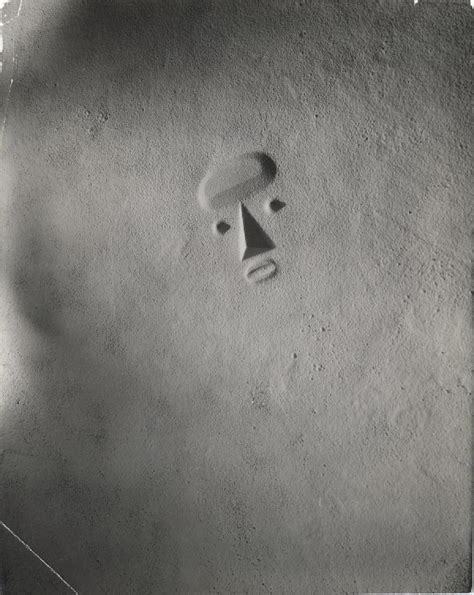

Sculpture to Be Seen From Mars, 1947
A ten-mile-long earthwork depicting an abstract human face, Noguchi’s Sculpture to Be Seen From Mars was, as the artist himself once put it, “a requiem for all of us who live with the atomic bomb” and alternatively “a flight of the imagination.” Prompted by the World War II atomic bombings of Hiroshima and Nagasaki, which horrified Noguchi—“he often spoke of his fear of atomic annihilation,” Hayden Herrera writes in Listening to Stone—he began thinking about end-of-mankind scenarios. “It was in 1945, wasn’t it, when we dropped the atomic bomb?” Noguchi once reflected. “All of us were concerned about our place on earth, and that it might be rather precarious.”
For Noguchi, the monumental work was intended to be “an eternal reminder to the rest of the solar system that the planet earth, seemingly bent on self-destruction, once had its civilizations,” writes Friedman in the Imaginary Landscapes catalogue, hailing it as the artist’s “most impressive memorial to the futility of war.” The work, as Friedman points out, was also Noguchi’s way of showing his respect and reverence for ancient and indigenous monumental forms, such as the pre-Columbian geometric earthworks in the Andes. “‘Earth sculpture’ is nothing new,” Noguchi said. “It’s just a new name for an old thing.”
The earthwork also connected to Noguchi’s ongoing interest in outer space and the cosmos. When the art critic Lucy Lippard asked Noguchi to use a photograph of the project in her 1983 book Overlay, paralleling contemporary art with prehistoric sites and symbols, Noguchi replied, “I recently saw a reproduction of a face which was found in the landscape of Mars taken by the Viking Satellite. I think it would be very appropriate to show this version along with mine. I have written to the Mars Research Laboratory asking for this image and will send it to you if you are interested.” The connection of rocks across the universe was not lost on the artist. “Ultimately,” Noguchi told Calvin Tomkins in The New Yorker in 1980, “I like to think that when you get to the furthest point of technology, when you get to outer space, what do you find to bring back? Rocks!”
An incredibly moving, visionary concept that, as Friedman notes, in many ways preceded the land art and conceptual art movements that would emerge and flourish in the second half of the twentieth century, Noguchi’s memorial to mankind was intended for “some desert, some unwanted area.” It was, as the artist put it, “a sculpture just to be seen from the air so that, when you come to a landing, you will see the sculpture there.” That Noguchi was concurrently working on the Jefferson National Expansion Memorial suggests he was balancing both a belief in America’s future technological prospects and an acknowledgment of the bleak potential for mankind to destroy the planet and itself. Sculpture to Be Seen From Mars is today only memorialized in a single photograph of a model Noguchi had formed out of sand.
#Sculpture to Be Seen From Mas#Isamu Noguchi#40s#earthwork#land art#monument#landscape#sculpture#mars#atomic bomb#hiroshima#war trauma#my upl#it reminds me of The Martian Chronicles so much...
4 notes
·
View notes
Text

The Building of Fort Meigs, 1813 (Mural Study, Perrysburg, Ohio Post Office), Glenn M. Shaw (1891–1981) (detail, Wikimedia Commons)
The British artillery bombardment of Fort Meigs in 1813 is usually seen as ineffectual: Henry Procter the British commander did not place his guns in optimal locations, even when Tecumseh and his chiefs prepared them, and most shot cleared the fort or landed harmlessly on the interior earthworks.
It was still an ordeal for the American defenders. Alfred M. Lorrain of the Petersburg Volunteers later wrote:
After the sortie, we visited the hospital. Reclining on a bed in one corner lay a gallant officer, who was attached to the engineer department. He had rendered much service from the beginning of the war, and his courage was unquestionable. But now, in consequence of the irritation of his nerves by the roar of artillery, the bursting of bombs, the pain of his wounds, and his feverish condition, he had become as timid and as peevish as a child, and was constantly apprehensive of being torn to pieces by a cannon-ball.
— The Helm, the Sword, and the Cross
#War of 1812 Wednesday#war of 1812#fort meigs#alfred lorrain#military history#petersburg volunteers#war trauma#dressed to kill#1810s#us army
21 notes
·
View notes
Text
#tumblr polls#poll post#l lawliet x reader#l lawilet#l death note#jasper hale imagine#jasper hale x reader#jasper hale x male reader#war trauma#enemies to lovers#haikyu x reader#haikyuu fanfiction#luna lovegood#luna lovegood x reader#gender neutral reader#dad headcanons#headcannons#l lawiet headcannons#harry potter fanfiction#harry potter#harry potter x male reader#harry potter x reader#remus Lupin as a dad#Lupin!Reader#Fanfic#fanfic writing#father and son#robin buckley#robin buckley x fem!reader#Ginger!Reader
33 notes
·
View notes
Text

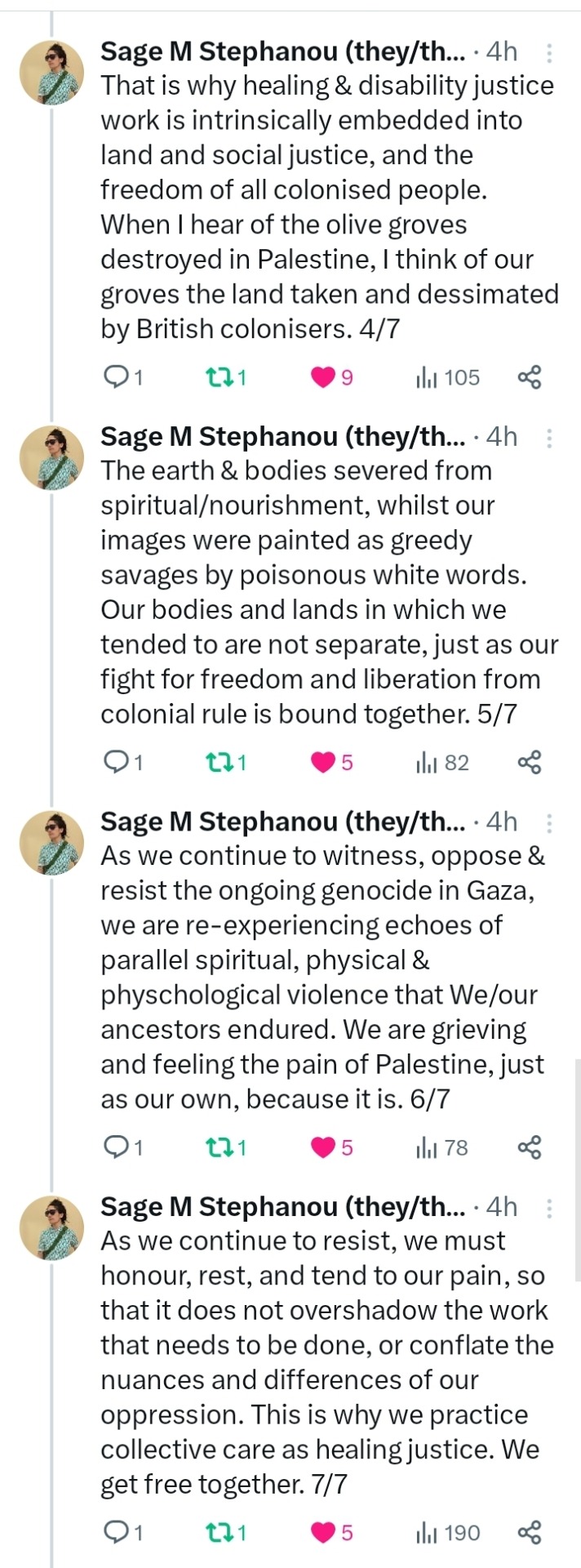

#free palestine#colonization#disability#disability justice#cptsd#ptsd#trauma#racism#racial violence#war crimes#war trauma#palestinian genocide#gaza genocide#genocide#intergenerational trauma#occupation#british empire#imperialism#chronic illness#autoimmune disease#displacement#ethnic cleansing#asylum seekers#refugees#immigration#hyperempathy#indigenous rights#decolonisation#knee of huss#poverty trauma
6 notes
·
View notes
Text
work update!!
we needed to read „all quiet on the western front“ for school and i kinda fell in love with the book (and the movie) and i wanted paul and kat to have a happy end, so i wrote one :)
summary:
„Sometimes family isn‘t about blood. Sometimes it‘s about love and he loves you Kat, so very much. I see it every day and I see how you love him too. You want to protect him, you want to keep him safe, you want to be there for him. You‘re like a father to him…but you’re related by love, not by blood.“
or, after the war ends Kat taked Paul home with him and life goes on…
work:
#writing#ao3#fanfiction#archive of our own#all quiet on the western front#stanislaus katczinsky#paul bäumer#tjaden#happy end#war trauma#im westen nichts neues#father son bonding#found family#i want to cry
8 notes
·
View notes
Text
"My PTSD riddled brain is going "WE ARE BEING ATTACKED! THE SHIP IS FALLING APART! MAYDAY MAYDAY! BRING THE WEAPONARY AND HARPOONS AND SHOOT! FIGHT AND CUT THEM! OH GOD I CANT DO THUS!" While the other half of my brain is going "no, we have Sera:D" like I'm getting mixed signals right now but I'm happy I'm not having a nervous breakdown." -Kozmotis Pitchiner
#kozmotis pitchiner#goc#guardians of childhood#seraphina pitchiner#theres a baby!#war trauma#my boy is tired
5 notes
·
View notes
Text
So, I’ve seen a post with a take on the Hob rescues Dream and going in guns blazing, because after world war 1 and 2, he would possibly be bitter and scarred to some degree, and so when he finds out about Dream being captured for decades and knowing the cruelty humans are capable of, particularly from WW2, he doesn’t particularly care what happens to the people who are holding his friend prisoner and when Dream locks eyes with him, he sees an emptiness in them, that wasn’t ever there before (it’s not permanent, but Hob has not quite healed yet from the wars)
And because my brain loves angst, I want to raise you:
Hob, who has lived through world war 1, the spanish flu and world war 2, who’s fought in both wars. He’s seen the cruelty of men and nature. He’s also killed many men himself and he’s watched many men, women and even some children die at the hands of others. He is haunted by all the faces of the people he killed and the ones he didn’t. The expressions on the faces of the ones that killed him (to the best of their knowledge) and the ones that simply couldn’t. He knows the stories of plenty of his comrades and he knows the stories of a fair few enemy soldiers. He’s seen how the cruelty of men and the cruelty of the orders given to them inflicts horrible harm on victims and twists the minds of the men following those orders.
Hob has seen and felt first-hand how war and violence devastates humanity and he can not be any part of it anymore.
So when he finds out that his Stranger has been captured and imprisoned, of course he is going to help. Of course he is going to rescue him, the thought of a friend suffering like that not something he could tolerate at the best of times, much less now. And Hob is still an optimist at heart, and he is still a clever and persistent man, he will still manage.
But while Hob would like to say that he would do anything to rescue his Stranger, the truth is he wouldn’t. He can’t. He cannot kill another person, cannot end another life after all the lives he’s seen lost in the last handful of decades. He cannot see another person’s light go out in front of his eyes so soon.
So Hob comes to rescue Dream. He fights the guards. He has weapons, he is prepared and he is skilled, the guards are far less skilled and caught by surprise. He could kill them easily, and Dream knows this, but instead he knocks them out without inflicting any permanent harm. He doesn’t use his gun, he barely uses his dagger, and he earns himself a bullet in the leg and a number of knife-wounds for it. And when he turns to his Stranger - his friend who is all but skin and bones and like on fucking display - when Dream sees the hurt in his eyes, this is when Dream realises for the first time just how dark and desolate humanities’ dreams have truly become in his decades of absence.
#The Sandman#Dream of the Endless#Morpheus#Hob Gadling#Hob rescues Dream#War Trauma#Hurt#No comfort (sorry)#Slightly broken Hob#I'm either misremembering the post that gave me this idea#Or there is another post that I can't find anymore#If anyone recognises the post please link me it!!
22 notes
·
View notes
Text
Inside her room was a bright naive child-like wondrous world of color. Her wings were a brilliant white, her skin a fair ivory color, her hair a glorious coffee brown and her eyes a cobalt blue. In her hand was a wooden toy sword and before her was a bag mannequin, holding its own shield and mace. Her stance stood firm, a foot before her and a foot back. The decoy stood no chance as the flying zip came before it could react. Finally, the toy sword took its aim and removed the soldier's head off its shoulders. The flier bounced from the corner of her room and behind the mannequin, her sword stabbing into the flimsy backing of the doll. Once the bag fell to the floor in defeat, the girl removed her sword and folded her wings.
An applause erupted the silence. Out of the shadows came a darker skinned Aviarian with mint green wings and brown curly hair pulled into a tight bun behind her head. "Good job, Ludibrio," said the Aviarian. "Though your speed could use some more control."
On her body was silver armor, the crest of the royal kingdom broad on her chest: a pair of wings that carried a heater shield with two curves at the very top. The shield itself was colored in four equal parts; a fiery red, a calming arctic, a pearlescent white and an enlightening yellow.
The princess bowed her head to show appreciation of her praise. "You taught me the best there is, Captain," the princess said gratefully. "And I've more to teach you as you grow," the woman added.
The captain moved to the head of the mannequin and lifted it from the floor. She placed the removable head back to the piston neck that carried it. A click settled the jawline into place and the decoy was ready to take another battle under its fabric purple wings- whose nocks were coming loose anyways.
She kneeled and patted the princess's hair down and smiled. "Why worry about fighting when you're so young?" She inquired. "Enjoy your youth. One day, it will be the most precious thing you own..."
The princess smiled back brightly. "Promise me you'll live through every moment. I want to see you flourish like the winged warrior you are." Ludibrio pondered for a long moment. Then she nodded with the same caring grin; "I promise, Vigilia..."
#WIP project#original story#Of A Feather#my ocs#oc story#OC series#fantasy#war#demons#possession#royalty#betrayal#siblinghood#family trauma#sibling trauma#war trauma#marriage trauma#death trauma#just a lot of goddamn trauma#istg this project has taken me over a decade to finally start writing
1 note
·
View note
Text
Modern Inheritance: Reunion, pt. 1 (Reunion and Loss)
(A/N: This came about while I was listening to Eldest at work because fuck yeah work-encouraged headphones! I had written a reunion for Glenwing and Arya in MIC years ago, and now it just didn’t feel right. So this happened.
It’s been almost a year since I really wrote anything for MIC that I found presentable and that I wrote so…voraciously? Iunno. I think in the interim my writing style may have changed. We’ll see how y’all like it. Everyone is a bit…softer? There’s definitely more crying than anyone has done in MIC before.
Before we start, I also need to make a distinct warning. I’ve given more description of wounds this time. Not like…oozy stuff really. But MIC is about the war and its effects, physical and mental, on people. Glenwing had some pretty bad injuries in the ambush, and I wanted to highlight that he’s got his own demons and trauma from the experience. I’ve introduced the concept of ‘recall’ for elves, which was touched on in ‘Collateral’ but never fleshed out till now. Make your decision to read with that in mind. There’s more of it in the next part, but Glenwing’s moments are fairly rough in my opinion.
The other half will be out when I figure out how to end it better than I did last night. Oh, and I can’t remember, but there might be more little hints and bits in this part that connect or refer to events seen or mentioned in other stories. Woo! Scavenger hunt! Cheers everyone, and welcome back to MIC!)
REUNION
The bustle of activity and near constant rush of people passed by in a blur. Arya let the crowd flow around her, sinking away from the main crush. She settled a few paces behind her mother where the Queen was conversing with Däthedr, silent and watchful as she always had been in these situations.
She was glad that Saphira and Eragon took most, if not all, the attention away from her. After that whirlwind of political and personal business, Arya didn’t feel much like talking to anyone. Such situations always put her on edge, and after so long away the combat liaison was finding it increasingly difficult to hold her tongue and remain the polite and proper diplomat she pretended to be in the pines.
So instead of mingling, Arya settled into an ingrained At Ease stance and began watching the gathered elves. Well, not so much the elves. Brom was her main target. The man had been all but forgotten in the rush, just as he had planned, and he sat at a table nursing a tankard of faelnirv. Yes, an entire tankard. To himself. Because that would end well. As the hour went on Arya contemplated asking her mentor for his shortsword and rifle. There’d be hell to pay if Oromis had to come down early to corral his former student yet again.
Oromis. Arya suppressed a wince; facing him was just as daunting as facing her mother. He wouldn’t have left the world unwatched while the queen wallowed in her self pity. He and Glaedr had to have know about Eragon, Saphira, Brom. Their madcap running around the Empire. Farthen Dûr.
And he would know about Arya. And Gil’ead. She hoped he hadn’t seen too much of that.
For a split second Arya smelled wet concrete and tasted copper and iron. The lilting music and bubbly voices smothered down to a low drone, a buzz that dug into her ear as the suddenly harsh light flickered.
Behind her back she felt her hands involuntarily snap into white knuckled fists, nails digging deep into her palms. Her wrists burned, fingers tingling with sharp pins and needles as the wet fire encircled the ruined skin and rusted steel bit in deep–
It took a breath, a blink. A shaking thumb subtly run over the dark swathe of scar tissue under the cuff of her combat jacket sleeve. Feeling the half rumpled and half silky repairs to her body.
The world snapped back into focus in time for Arya to mumble a returned greeting as another elf brushed past. She bit her tongue for real this time. ‘Damn recall.’
The night dragged on, and while the rest of Ellesméra whirled and danced Arya could not help but feel rooted in place, stationary in both time and movement. It felt…wrong. She was no stranger to solitude, that was certain, but for some reason standing there, alone despite the sea of people, felt off.
The hollow feeling in her chest intensified. Ellesméra felt leagues larger without them there.
Her bitter musings were interrupted by a violent yank on her arm.
Everything in her body snapped taut as Arya whirled, letting the attacker’s motion turn her as she brought up both fists. The momentum carried her raising arm up to lock against the inner elbow of the man that was now grabbing at her shoulders, ready to throw him off and slam him in the jaw with her free palm. He had both shoulders now, fingers tightening, one hand impossibly hard and cold–
Golden eyes caught her movements, freezing her in place. The entire world dropped away.
Arya couldn’t breathe. The dead man held her at arms length, his brow furrowed and silver hair still settling around his face from where it had escaped his ponytail. His eyes, they had always seen past whatever she said and found what she meant to say, searched her face with the intensity of a hunting dragon.
He had looked at her like that before, though not quite so intently. Every time she did something so remarkably stupid, like throw an artillery shell back over the trench wall, curl around a grenade to absorb its destruction into her wards, stuck her hand in a Broddring cannon, or, the worst offense of all, go without sleep in favor of double watch shifts and nights disappeared without a word beside their other companion. Always looking out for her. For them.
The last time she had seen his face it was planted in the dirt, blood pooling and trickling towards open golden eyes as they stared unseeing into the darkness, before the swarm of Urgals had blocked her view.
And now he was looking at her, bright, alert, and with so much fear and disbelief and hope and who the hell knows what else because Glenwing of House Svanran, healer and medic and best friend and dead man walking, was holding her by the shoulders and trying just as desperately as she to figure out if the person in front of him was really, truly alive.
“...Glen?” Arya half choked, the last air in her lungs used to voice her disbelief. She could barely hear it over the noise around them.
At her uttering of his name Glenwing suddenly seized her face in his hands and let out a cracked laugh. Tears spilled from his eyes as he half cried, half laughed, “Spirits, it is you!”
And his arms were pulling her in and around her and hugging impossibly tight.
Arya didn’t hesitate, hugging him back fiercely and holding on, unwilling to let go in case he too slipped away like the other memories. Something snapped inside her chest and in her throat as she let out a broken laugh of her own. “You’re alive! You’re alive!”
They stayed like that for what felt like ages, relief flowing off of them like a waterfall with tears of joy and disbelief. They weren’t alone anymore.
It must have been a full minute before the world around them became important again, and Arya reluctantly pulled back. “We should,” She broke off and wiped her eyes, cleared her throat before speaking again without the tremor in her voice. “We should probably go….”
“Good call.”
With a small gesture Arya caught her mother’s eye. When the queen inclined her head slightly the two reunited elves snapped their heels together and bowed, knocking their right knuckles to their left collarbones in acknowledgement before all but bolting to the edge of the crowded grove. Here, at least, it was quiet but for a low murmur of the gathered people and a soft thread of music through the trees. No one would be looking out to the forest, not with something as amazing as Eragon and Saphira at the center of attention. Here Arya and Glenwing would have a modicum of privacy to talk.
It was Arya’s turn to take Glen by the shoulders, and she shook her head with another chuckle past the lump in her throat. “You fucking bastard.” They shared a laugh again. “You absolute bastard. I saw you die. And I never thought….”
“You’re complaining about me?” Glenwing beamed, wiping away tears with his right hand. “All those times I told you not to go running off and get yourself killed, and then I figure that you’ve gone and finally done it.”
“Hey, I was doing my job!”
“You always say that.”
“I actually was this time!”
After a few moments of excited chatter, Arya felt cold seeping back into the warm relief that seeing Glenwing had brought. Already knowing the answer, she looked out to the dark pines that hid from the celebration’s light. The pommel of the sword at her hip bit into her palm, a small comfort for what she knew was about to come. “Hey, I uh…” She blinked, cleared her throat as best she could past the returning lump. “I take it…you’re my only surprise tonight, huh?” When Glen shifted uneasily, Arya felt a pang of regret at her phrasing and shot him a wan grin. “Not that you’re underappreciated or any–”
Glenwing’s jaw tightened, and for a moment Arya saw his throat convulse as he swallowed. His voice was steady, though, when he gently, grimly, replied, “I’m sorry.”
She shook her head. Didn’t say anything for a long, painful minute. “I couldn’t have ever asked for either of you to survive that. Couldn’t even think, imagine, hope, whatever.” Arya waved a hand vaguely, unable to put her feelings into words. “But, shit, Glen. We’ve done so much dangerous, wild–”
“Insane?” That grin was back, tinged with sadness but filled with a familiar wild undertone that everyone in their little fyrn breoal held.
“Insane!” Arya added with a laugh. “Everything we’ve done and everything we shouldn’t have survived…. I’m just happy you made it out. That we made it out. And look! We did it, we found them!” She pointed towards Saphira’s glittering form in the midst of the crowd that felt so far away. “Let’s just…let’s celebrate that right now. Celebrate him. Shit, can you imagine the ruckus he’d make? We did it! We finally did it.” She couldn’t hide the tangle of elation and relief that broke through the pain. This is what they had all been fighting for, together, for decades. Fäolin would want them to have that, to feel the joy for him.
A commotion drew their attention. Elves were returning from the cookfires, arms laden with dishes and bowls and platters. The sight made both the medic and the combat liaison stiffen somewhat, knowing that their brief time to reacquaint themselves was drawing to a quick end.
Arya let out a short huff and drew herself up, steeling herself for the rabble again. “Alright. Come on.” Glen grinned when she slapped his arm and seized his face with both hands, squeezing his cheeks. “Have to make sure you’re not some hallucination. Let’s go drink. We’re here. We’re safe.” She slid her hands to his shoulders, began drawing them down his arms in preparation to drag him off to meet the biggest pair of silver linings in history. “We’re in one…”
She trailed off as her right hand slipped down his left arm and stopped short at the bicep. That…that wasn’t….
“Piece?” Words stuck in her throat at the sound of the wry tone in Glen’s voice. He thought he was hiding the ache under that twisted tilt of his lips as her eyes snapped up to his. “Yeah…about that.”
“...Glen, what–”
“Later. I promise.” Without waiting for her protests, Glen slid an arm around his lost commander's shoulders and began walking back to the tables. "Celebrate, right? Introduce me to these two first. Then we drink."
~~~
LOSS
The door creaked as it slid open, sticking at that same spot as it always had. Arya purposefully kept her eyes down as she closed it, avoiding looking towards her mother where she stood still half stunned outside. Just as she had told the queen, she really wasn’t ready to forgive her, not now. If she met her mother’s gaze there was bound to be a war between exploding at her in buried rage or breaking down after the many emotional hills and valleys of the day.
She made it two steps into the flat, pack already sliding off her arms, when she froze.
Glen blinked at her from where he was lounging on the couch, just as surprised as she was.
They stared at each other for a long moment.
“I uh…” Arya tilted her head slightly. “Wow. Um. I forgot you were alive. And that you’d probably be here.”
The medic blinked again, bewildered, and burst out laughing. “You what?!”
“It’s been a really, really long day!” Arya threw her pack at him, ignoring the yelp of protest, and dropped onto the opposite end of the couch.
Glen moved the bag to the floor as his lost commander disentangled herself from her rifle strap, feeling her eyes on him as he leaned back. He wouldn’t admit it, but he had forgotten that she likely would come back to the flat instead of her long disused room at Tialdarí Hall. He was drained from the night of food and music and emotion, and had trudged home and changed into sleep clothes as soon as he entered, completely oblivious to the possibility of intrusion.
The loose tanktop, standard issue to Varden soldiers in warm climates, left the metal of his bionic prosthetic on full display, the plating glinting dully in the low werelight.
They sat in silence for what had to be half an hour, recuperating. Glen made no move to cover the evidence of his missing limb. A niggling feeling in the back of his mind urged him to do so, whispering that she didn’t need guilt on top of everything else. He shushed it, reminded it that he knew that she wasn’t the reason he was down an arm.
‘But does she know that?’
“...What happened?” Glen rolled his head to look over at Arya, her voice quiet and softer than he remembered she could be. He had tried to lock in the memories of them all together during happy times, wild times, not the times where they had to quietly ask each other if they could keep fighting. “I didn’t…didn’t see where you got hit. I thought it was the chest.”
Glenwing lifted his left arm, the servos drawing power from the precious gems embedded on the insides of the plates whirring almost imperceptibly in the silence. He turned the wrist, tilted the forearm, bent the elbow. Stared at it. “Almost. One went through the bone just above my elbow. Another one got me in the hip.” With two fingers he tapped where the second bullet had entered. “Balan threw me when he got hit and I got knocked out.”
He inhaled through his nose and bit back a sigh. He could smell pinesmoke again, pungent and heavy. “I think…everything was over when I came around the first time. There was fire but the Urgals were gone. I was cognizant enough to realize I was bleeding out and used the bloodstopper spell to tie off the artery and veins in my arm but…” The fingers made a pleasing series of clicks as he curled them into a fist. “I passed out again. And it was a good bit before I was aware of anything after that.”
The elves in Vandral, the closest outpost to the edge of Du Weldenvarden where the ambush had occurred, had filled him in as best they could. How they found him half crawling, half dragging himself along the forest floor on their morning patrol. Fäolin’s cold body tied to his own by belts looped across his chest and secured under the dead elf’s arms. The remains of his left arm at and below his now pulverized, shredded elbow hanging on by mutilated muscle. The unmoving fingers white and purple and dusky from lack of blood. The burns on his chest, forearms, knees, thighs, from dragging himself and his long dead brother-in-war and remaining best friend through ashes and embers during the night.
The way he begged them to save Fäolin. Begged them to find her.
Waking up, his burns healed. His arm–
Pain at his metal wrist ricocheted up to his shoulder. Brought him back.
Glenwing forced the metallic fingers open. “I…I tried to save him.” He dropped both hands to rest limp in his lap, Rhunön’s masterpiece relaying his movements perfectly through metal and crystal. “He was gone before he even hit the ground.”
“I know.” When he looked over Arya was staring past him. “I saw it.” After a moment her eyes cleared, and locked back on him. “Your arm….”
“Bloodstopper worked a little too well, I’m afraid.” He forced a smile. He could still smell the burning pines, but it was fading. Instead it was slowly being replaced by the familiar scent of the worn leather additions on Arya’s combat jacket, gun oil, sharp pine sap and an undertone of gunpowder. It smelled like home, like the Varden, like Arya and Fäolin and decades of companionship and friends. It smelled like safety in their little group. “Rhunön built this for me, though. It works better than the old one!”
Arya shook her head, a touch of a grin on her lips. “I’m sure. She’s outdone herself.”
“How about you?” Glen didn’t have to know her for over five decades to notice the way Arya changed at the question. Her arms pulled in, the rifle settled across her lap. “What happened to land you with Eragon, Saphira, and Brom of all people?”
Instead of answering him Arya yawned. That was real, he wouldn’t deny that, but she was all too eager to postpone whatever answers she had. “Tell you what,” She stretched and rubbed the back of her neck, massaging a kink out of the muscle that connected to her shoulder. “That’s a story for later. Right now I’m about to pass out on this couch if I don’t get to sleep for a few hours.”
“I’ll hold you to that.” Glen’s voice was lighthearted, but they both could hear the warning under the words. It was clear as day, a promise made decades ago. Don’t hide wounds from your fyrn breoal. Head, heart or body, commander, medic or sniper, the only way to stay alive and keep the others safe was to share. “I’m sure it’s a hell of a story.”
Arya waved at him over her shoulder, already halfway down the hall to the room she had shared with her mate. “Yeah. It’s a real doozy. Goodnight, Glen. You still alive bastard.”
“Goodnight, Arya. Resurrected prodigal wild child.”
She blew a raspberry at him as she closed the door.
Glenwing sat back on the couch, the grin fading. His eyes fell on her discarded pack, stripped of weapons and bedroll, sitting at his feet.
The lock on the strap still accepted his thumbprint. It took only a few moments to find what he sought, buried under a mess kit and a pair of socks stuffed in a worn knit beanie she had acquired nearly twenty years ago from a Surdan merchant. A thick file, stuffed with pictures haphazardly sticking out at odd angles, sticky notes and scratched out shorthand. A scattering of numbers and letters, followed by a bold ‘6’ indicated it was the sixth such file in the series, a collection of war wounds and physical exams and the occasional psych eval that never really counted due to the elvish mind being alien enough to circumvent any human or dwarf made test.
Glen pulled it out and brushed his fingers along the tabs till he found one marked a little over two months ago. He didn’t open it, just let his fingertips linger as he mulled over revealing the contents.
No.
She would tell him.
He left the file on the coffee table.
~~~~~~
(Post A/N: If there is anyone who saw things wrong with my representation of amputation and amputees, please message me. I tried to do thorough research, but I am not an amputee myself and don’t have the real life experience to know if I’m portraying it properly. I did my best to be respectful and as real as the setting allowed. I’m always up for learning and having my misconceptions corrected, and I’m continuing my research to make sure I’m giving it the proper respect and sensitivity.)
#eragon#inheritance cycle#the cyclists#ket's modern inheritance cycle#modern inheritance#modern inheritance stories#the inheritance cycle#arya drottningu#glenwing#war trauma#tw: amputee character#is that a trigger?#tw: trauma#just in general#eldest (inheritance)#I...i dont remember what i wrote but i wrote a lot and read it like two minutes ago#i like rhunon btw#just saying#trauma babbies#elf squad#og elf squad#Arya and glenwing are best friends and give zero shits about everyone else's opinion of their human like tendencies#they need hugs#and look! they get hugs!#will i ever learn to write shorter A/Ns? no.
9 notes
·
View notes
Note
Since TIG’s birthday is coming up, how do you think Terry feels about birthdays? Has his feelings changed over the years?
---
From the earliest years of his life, I imagine birthdays in an old money type family like the Silvers weren't your ordinary balloons and cake affairs one might immediately opt to envisioning--- something that would be considered cheap, kitsch and vulgar. More befitting the common rabble; it was private for the Silvers, I feel, in fact. So private, that it was solemn, and a near non-existent affair. Certainly not a kid's party. No other children present, no music (unless it is some classy ambiance one can quietly waltz to), no ribbons and the only company was to be found in other adults, mingling in the parlour, talking about adult things, sharing gin, tobacco and playing Bridge. Sure, gifts were given, because I figure if there is one thing Terry Silver didn't lack growing up it was material possessions galore. Material possessions a child might not even need necessarily; like a...diamond encrusted watch for his seventh birthday when all he might've wanted was some sort of toy to play with, like any kid would've. Nope, his next gift was a bejewelled needle pin for his tie monogrammed with his initials because a relative knew someone at Cartier. Maybe a new piano to practice on? Maybe a new teacher or two, imported, from overseas, if needed, like one imports furniture? He wasn't an unhappy kid, necessarily, but there is something fundamentally lacking in this image described.
So, birthdays?
I don't think Terry viewed birthdays the way most people view birthdays.
Maybe in the 80's, he'd see it as yet another occasion to cart out the champagne, the cigars, the coke and have a celebratory orgy out on some private island he owns, giving his staff ostentatious raises in the meantime, but then again, Terry Silver doesn't need to wait around for birthdays once a year for that when life was what he made it out to be as he was master of it, controlled by nothing but his impulses and desires. But, the real, genuine intimacy of a birthday? Inviting special people to commemorate one's age and mark an important goalpost in one's life?
No.
Too intimate.
Too vulnerable.
I think Terry would feel way too seen.
And he doesn't want to be seen like that.
He's not available; cancel all his meetings and calls. It is 1985 and he's too busy!
It is all a load of bullshit anyway.
He'd use excess to distract from the real meaning of a birthday.
I feel some of the most heartfelt moments he's ever celebrated birthdays in what would've been considered the classic, traditional way to do it could've been in Vietnam. Why? Because it was the one time he had friends that were truly his and friends he truly felt he made on his own merit, in an environment where any day could've been his last, free of the rigid expectation of the class he was born into and the method he was raised in; ironically, it was in war where he needed to grow up right there and then and be a man, but also, where he could be just a kid sometimes, and have candles on a cake in some makeshift concoction John and Ponytail might've acquired for him at base camp, alongside eighteen candles to mark Twig's adulthood during their leaves back at the barracks, shocked once they discovered Twig has never actually celebrated the way everyone else does. Then came his time in the POW camp, Ponytail's death, John fighting Turner to the death, the snake-pit, the end of the war, and Terry never really marked the occasion again that way, oddly frozen in time, aging, yet somehow forever seventeen, or eighteen. Nineteen? However many years it was. On the cusp of being a young adult and a teenager, caught somewhere in-between the two, his age oddly coinciding with the age Ponytail might've been when he was shot; everything moving yet forever standing still in the fog of trauma. It is entirely believable that in taking on so much of Ponytail's identity, Terry might've actually discarded the original date he was born, going as far as altering his own records after the war (he was certainly powerful and rich enough for that), and took on his friend's instead, as homage to the compatriot he felt responsible for, changing his literal stars.
Maybe Terry just wanted to forget? Maybe he isn't aware he did?
Maybe it was a deliberate choice?
By the time he became an old man, Terry long since ceased celebrating and undoubtedly hasn't for decades, because everyone who ever knew him as he was long since dead and gone except for John (who might've been the one individual he mutually celebrated with even post-war), and I don't think he's met anyone since who he wanted to know him enough to celebrate his birthdays with him and see him as so very human and in such a deeply intimate and personal light; wearing far too many masks and faces to reveal himself so readily, especially when the subject of maturity and mortality comes into question and that the fact that he can't control the concept of aging and time itself, which would undoubtedly vex at his mind constantly enough to where birthdays became distasteful and he'd rather ignore them as a whole; so Terry became shockingly elusive with the date he was born (as does most any digging online one could conduct even if they tried, coming up with nothing but contradictive and misguiding info and a bunch of dead ends, like someone scrubbed the Internet clean with a fine comb; and someone did) and even if somebody brought up the special occasion as mere small-talk, he'd find ways to wiggle out, charmingly declare he's busy and disappear on important business to, say, Seoul, for the weekend. Terry was meant to die on the battlefield a long, long time ago, he thinks, and so celebrating a birthday --- a day of life --- for a man alive on borrowed time is futile, and even if he celebrated with someone, I see him celebrating, creepily enough, the birthday of an already dead man in the form of Ponytail instead of his own, the one he was actually born on. So, Terry Silver's ''birthday'' --- a fluke --- is more a rite and commemoration for the dead merely disguised as one.
#character analysis#terry silver#ponytail#john kreese#vietnam#ptsd#identity loss#war trauma#split identity#birthday#birthdays#terry silver headcanon#terry silver headcanons#terry silver twig#twig terry silver#eerie#cobra kai#kk3#the karate kid#the karate kid 3
8 notes
·
View notes
Text
Uneducated: Musings on a Passage from "All Quiet on the Western Front" and the Trauma of the Greatest Generation
So I finished reading All Quiet on the Western Front today. It was a beautiful, harrowing, and incredibly bleak book. I would not recommend it to the lighthearted, but its simple and brutal prose does a masterful job of stripping the romanticism of the "Great War" down to the collective traumatizing experience that it was a to a generation of young men who died (or lived) for nothing.
I am by no means educated on the depths of 1900's history-- I hear stories, sure, but I've never been some kind of historical scholar or history buff. I only have my own "uneducated" speculations to work off of, coupled with a general knowledge accumulated through living all of 28 years. The purpose of that is to say, the point of this post is not to inform or educate-- merely to speculate on some thoughts I had while reading a particular quote from this novel.
The quote is thus:
"I realize he does not know that a man cannot talk of such things; I would do it willingly, but it is too dangerous for me to put these things into words. I am afraid they might then become gigantic and I be no longer able to master them. What would become of us if everything that happens out there were quite clear to us?"
For context, our main character, Paul Baumer, has been given leave from the front lines for roughly two weeks. He is home again, with his mother and father. His mother seems to know by instinct that something is wrong and though she is fraught with worry, she does not try to pry the unspoken words from her son. His father, on the other hand, does not pick up on this and asks all manner of questions. Paul often speaks of the funny things that happened in the war: jokes with friends, events in training, small moments of peace and levity. To his father, who is ignorant of the war experience, these retold events are simply the events of the war. His son is a brave German warrior fighting the good fight out on the frontline. To Paul, these retold events are the only moments where he was allowed to find any levity. He chooses to tell the parts of the war that kept him sane in an insane place. A lie through omission, because he is afraid that he cannot truly bring himself to face the ugly monster of the experience for what it is.
With this passage, I thought of the vague notions I have for life in the early 1900's. Again, I'm very ignorant overall, but from the stories and little histories that I do know, there seems to be a repeated theme of parents being distant from their children, especially fathers. It stands to reason that a lot of these fathers who seemed unable to express their emotions to their children were likely "shell shocked" veterans of the "Great War."
It's a leap I am completely unqualified to make so bear with me and correct me, BUT if we can assume this notion to be true: that veteran fathers of WWI were more emotionally vacant in their family lives than comparable populations on average, then I think this quote is an interesting exploration on why that is.
By keeping these experiences inside, they become "controllable." It's subject to the person's mind. Keeping it in makes it smaller, more manageable, more abstract. Essentially, the less defined the experience, the better.
This is arguably the opposite of most modern points of how to confront and deal with lingering traumatic experiences. Generally speaking (not saying in ALL cases), difficult things should usually be talked about in some capacity, as that language gives those experiences a concise meaning that can be expressed. By using expressive language, we define and organize the traumatic into an orderly narrative. Suddenly an infinite chasm of abstract, large, and very complex emotions becomes finite-- as it were "quantifiable." Those emotions and traumas aren't suddenly healed by talking about them, but they are given form. When these traumas have form, they become easier to understand, and if easier to understand they are easier to manage, and if easier to manage they are easier to heal from.
I think what frightens me about Paul's way of thinking about his experiences is that, despite my modern understanding of trauma and psychology, his reasoning makes sense. I see the rationale in it. I can empathize for why and how he thinks that way.
Sometimes in psychological circles we have a tendency to infantilize people in the past as "not knowing any better," as if because they simply did not having the modern language to express certain concepts, the people of the past were ignorant to that concept altogether. But here with Paul we see that it is not simply ignorance of the trauma he's experiencing, as if he doesn't even know he's traumatized. He is aware he is broken and fundamentally altered and he is expressing a manner of how to deal with that trauma. There's a rational mentality to it.
Paul is afraid if he speaks it and the experiences escape through his lips they will manifest into something bigger than he can control. It is such a terrifyingly large trauma on the soul that even giving it that form through language is scary and perhaps too difficult. If it escapes the mind, if it's no longer held in, it can run and grow and destroy, as if the experience itself were a real living being. By speaking it into existence one has let go of the leash that held that monster back. If it stays inside it remains abstract, elusive, and seemingly smaller. We can push it into a corner and ignore it. We can try to wrestle power away from it by not giving it the satisfaction of destroying our external lives, not realizing that if we keep it inside it will also eat us from the inside.
While we understand today that is not the best way to cope with our scars and our battles, there is a frighteningly sane and logical rationale behind it.
Once again, I am ignorant to to speak of experiences I do not have and I obviously didn't live to see this period so any assumptions I make of the people who lived through this era should be taken with a grain of salt, or you can dismiss me outright. I am merely musing about this one passage and what I think it might illuminate about the Greatest Generation and their collective approach to trauma.
I wonder if this is perhaps why so many of that generation were recalled by their own children to be "distant," keeping an icy wall of emotional detachment from the lives of their children and loved ones. Maybe in a sad way, that emotional distance WAS an expression of love.
Maybe many of those men thought they were protecting their children from the formless monsters that lurked inside their father's head.
#All Quiet on the Western Front#Trauma#War Trauma#WWI#The Great War#Grey's thoughts#Uneducated#Grey's Uneducated Series#Please feel free to engage with this#For anyone who does bother to read this wall of text I don't want to be lecturing you#I want to know the thoughts of others who are informed more on these subjects
3 notes
·
View notes